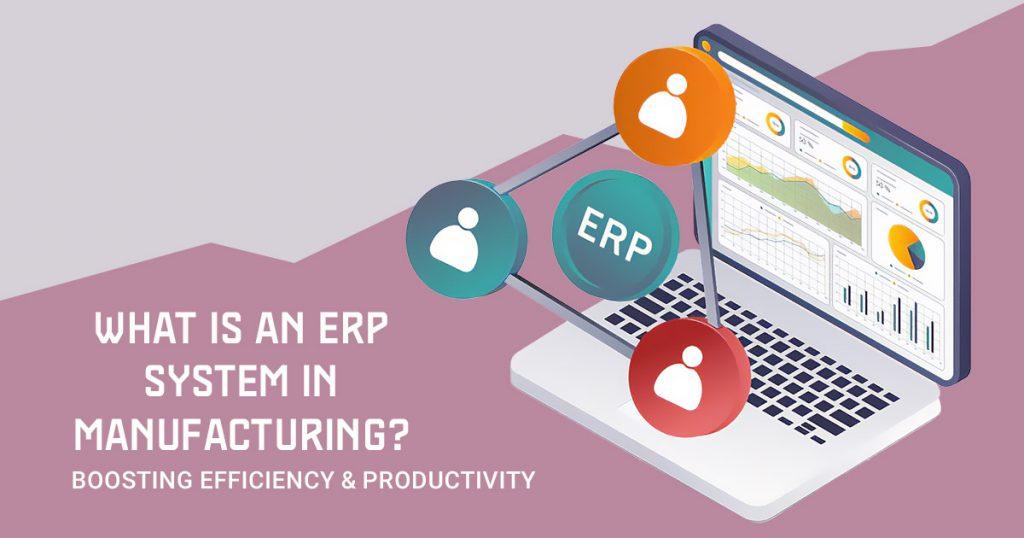The manufacturing industry has played a major role in economic growth, starting from the Industrial Revolution to becoming a high-tech sector today. It’s been crucial in making life better by producing a wide variety of goods we use every day, like cars and home appliances, which are essential for our daily ease and comfort.
Manufacturing doesn’t just meet the needs of society; it also creates many jobs, offering work for people with different skills and helping local economies thrive. Workers in this industry focus on being efficient, using special processes to boost productivity. According to a study by the National Association of Manufacturers, the manufacturing industry supports over 13 million jobs in the U.S., highlighting its significance in the job market.
Over time, manufacturing has seen big changes with new technologies that boost productivity and efficiency. One of these major advancements is the use of Enterprise Resource Planning (ERP) systems, which have transformed how manufacturing operations are managed and improved.
Modern Practices in the Manufacturing Industry
Today, the manufacturing industry uses several smart practices to work better and faster. One such practice is lean manufacturing, which aims to cut down on waste and focus on creating more value in production. This means making processes as efficient as possible. Automation is another big change is where machines do repetitive tasks, allowing them to be done more quickly and accurately than humans could. There’s also just-in-time production, which means companies only get materials as they’re needed, saving money on storage and reducing clutter.
In addition to these practices, using Enterprise Resource Planning (ERP) systems has made a big difference in how manufacturing works. ERP is a type of software that brings different business processes together into one system. This helps companies make sure that all parts of the business, from making products to handling money, are in sync and using the same up-to-date information.
Benefits of ERP in the Manufacturing Industry
ERP systems bring a lot of benefits to the manufacturing industry by making processes smoother and helping everyone involved. Here’s how they help:
Increased Efficiency
ERPs automate everyday tasks and link different parts of the business, saving time and effort. This allows workers to focus on important tasks, boosting overall productivity.
Better Inventory Management
With ERP, manufacturers can see their stock levels in real-time, ensuring they have just the right amount. This prevents having too much or too little stock, leading to smoother operations and lower storage costs.
Improved Production Planning
ERP systems help in planning production schedules better. They allow manufacturers to predict demand, use resources wisely, and reduce downtime, ensuring products are ready when customers need them.
Enhanced Data Accuracy
ERPs make sure that everyone has the correct information by compiling data from every department of the company in one location. This improves reporting and analysis, helping managers make smart decisions based on reliable data.
Streamlined Communication
ERPs make it easier for different departments to share information and communicate. This ensures everyone is on the same page, improving teamwork and reducing confusion.
These benefits lead to cost savings by cutting down waste and increasing efficiency. They also help in making better decisions with clear insights into how the business is doing, allowing companies to adapt quickly to market changes.
ERP Solutions for the Manufacturing Industry Today
1. SAP ERP
SAP ERP helps manage inventory, plan production, and oversee the supply chain by bringing different business processes together and providing useful data insights. It collects information from various departments, making it easy for everyone to communicate and work together. This setup helps companies use resources wisely, cut down on waste, and boost productivity.
2. Oracle ERP
Oracle ERP offers tools for managing finances, buying supplies, and overseeing projects, along with advanced data analysis to help make smart decisions. Its cloud-based system lets you access business data from anywhere, making operations flexible and efficient. Oracle ERP aids in strategic planning and improved business activity management by offering insights into costs and performance.
3. Microsoft Dynamics 365
This system connects business processes like sales, customer service, and operations, working smoothly with other Microsoft products for a familiar user experience. Microsoft Dynamics 365 automates everyday tasks to improve efficiency and gives detailed insights to enhance customer interactions and streamline operations.
4. Infor CloudSuite Industrial (SyteLine)
Infor CloudSuite is designed for manufacturing, offering tools for managing production, planning the supply chain, and ensuring quality. Using cloud technology, it provides flexibility and scalability, helping manufacturers quickly adapt to market changes. It emphasizes making production more efficient and reducing waiting times.
5. Epicor ERP
Epicor ERP is ideal for mid-sized manufacturers, helping manage processes like job scheduling, materials planning, and financial management. It simplifies operations with industry-specific features, allowing businesses to use resources better and keep customers satisfied by providing real-time visibility into operations. This makes Epicor effective in enhancing the smooth running of manufacturing processes while maintaining high levels of customer service.
The Future of ERP in Manufacturing
Looking ahead, ERP systems will play an even bigger role in manufacturing as technology continues to advance. With the help of artificial intelligence (AI), ERP systems will become smarter, offering tools that can predict issues before they happen and help make quick, informed decisions. This means manufacturers will be able to solve problems before they escalate.
The Internet of Things (IoT) will also boost ERP systems by connecting machines and devices, providing real-time data from the factory floor. This will allow for more precise control over production, reducing downtime and improving efficiency. Cloud computing will make ERP more accessible, letting businesses of all sizes use flexible systems that can be accessed from anywhere.
These technological advances will not only make manufacturing more efficient but will also encourage innovation. With faster data and better insights, companies can streamline operations, cut costs, and improve product quality. The future of ERP in manufacturing is bright, promising a more dynamic and competitive industry where technology helps meet market demands and pushes the boundaries of what’s possible.
